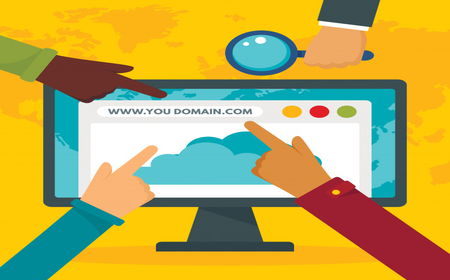Online DNS Tools
DNS Tools - DNS stands for Domain Name System. It’s the system used to translate the domain names humans can remember (e.g. https://cwatch.comodo.com/) into internet protocol (IP) addresses computers can use. DNS was developed way back in the early 1980s and still works impressively well. It is, however, increasingly obvious that it was never developed with security in mind. Fortunately, there are ways it can be made more robust. Here is what you need to know.
There are three main ways DNS can be weaponized by cyberattackers
1. DNS tunneling intercepts DNS queries and responses and uses them as vehicles for the transmission of malware and/or data theft.
2. DNS spoofing/cache poisoning and DNS hijacking both aim to divert a user from the website they intend to visit a malicious website. The malicious website often replicates the look and feel of the legitimate website to continue the deception for as long as possible.

3. NXDOMAIN attacks, phantom domain attacks, random subdomain attacks, domain lock-up attacks, and botnet-based CPE attacks are all variations on the theme of distributed denial of service attacks.
For completeness, there are many other DNS-based threats out in the wild. These are just the most common ones. The others, however, typically fall into one of these three categories.
DNS tools can help to keep your website safe
There are all kinds of DNS tools available online and it has to be said that some of the free tools do offer excellent functionality, provided that you understand how to use them effectively. For SMBs and their support staff, however, it is often more practical to go for a website vulnerability scanning service.
Different vendors will have their own versions of these, but you can expect any decent option to have an anti-malware scanner, a website applications firewall, and extra DNS tools. The big advantage of using these services is that commercial vendors design them to be user-friendly. Basically they know that ease of use is often one of the main reasons companies pay for a service they could have had for free.
Rather ironically, however, the cost of using DNS tools via a website vulnerability scanner is probably going to be little to nothing more than using the free tools because they come bundled together with other security software you’re going to need anyway.
The two ways to use DNS tools
There are basically two ways you can use DNS tools. These are proactively and reactively. Proactive DNS solutions include DNSSEC, Anycast routing, ping tools, regular firewalls, and DNS firewalls. Reactive DNS solutions are essentially variations on DNS look-up services. These basically act as a health check on how well DNS is operating on your website. You can and probably should make a point of looking at them periodically even when your website is operating properly, but they really come into their own when you have issues.
1. DNSSEC
DNSSEC stands for DNS Security Extensions. This is roughly analogous to HTTPS in that it digitally signs data to help ensure its validity. In fact, it is often used in combination with HTTPS to create a much higher level of protection for internet traffic.
2. Anycast routing
Anycast routing allows multiple servers to share a single IP address. This means that if one server gets disrupted in an attack (or for any other reason), the other servers will step in to compensate for it.
Ping tools
Ping tools keep track of your server’s response time. They can alert you to a problem long before your firewall or your DNS firewall pick up on the threat.
1. Regular firewalls
You can argue the technical point about whether or not regular firewalls are DNS tools. They can, however, reasonably be included in any discussion on DNS tools because they play a key role in preventing DDoS attacks. A regular firewall monitors internet traffic (both incoming and outgoing) and can also be used to filter it according to a predefined set of rules.
2. DNS firewalls
DNS firewalls are very similar to regular firewalls, but it has enhanced capabilities to improve your website’s performance in the event of an attack. For example, if your server is brought down then your DNS firewall may be able to step in and provide responses by accessing its cache.
Never underestimate the importance of your infrastructure
DNS tools should be used as a way to get the most out of well-designed, robust, well-provisioned infrastructure, not to compensate for infrastructure failings. In particular, always buy as much bandwidth as you can reasonably afford as this gives you a very high level of protection against DDoS attacks.
Please click here now to have your website scanned, for free, by cWatch from Comodo.





